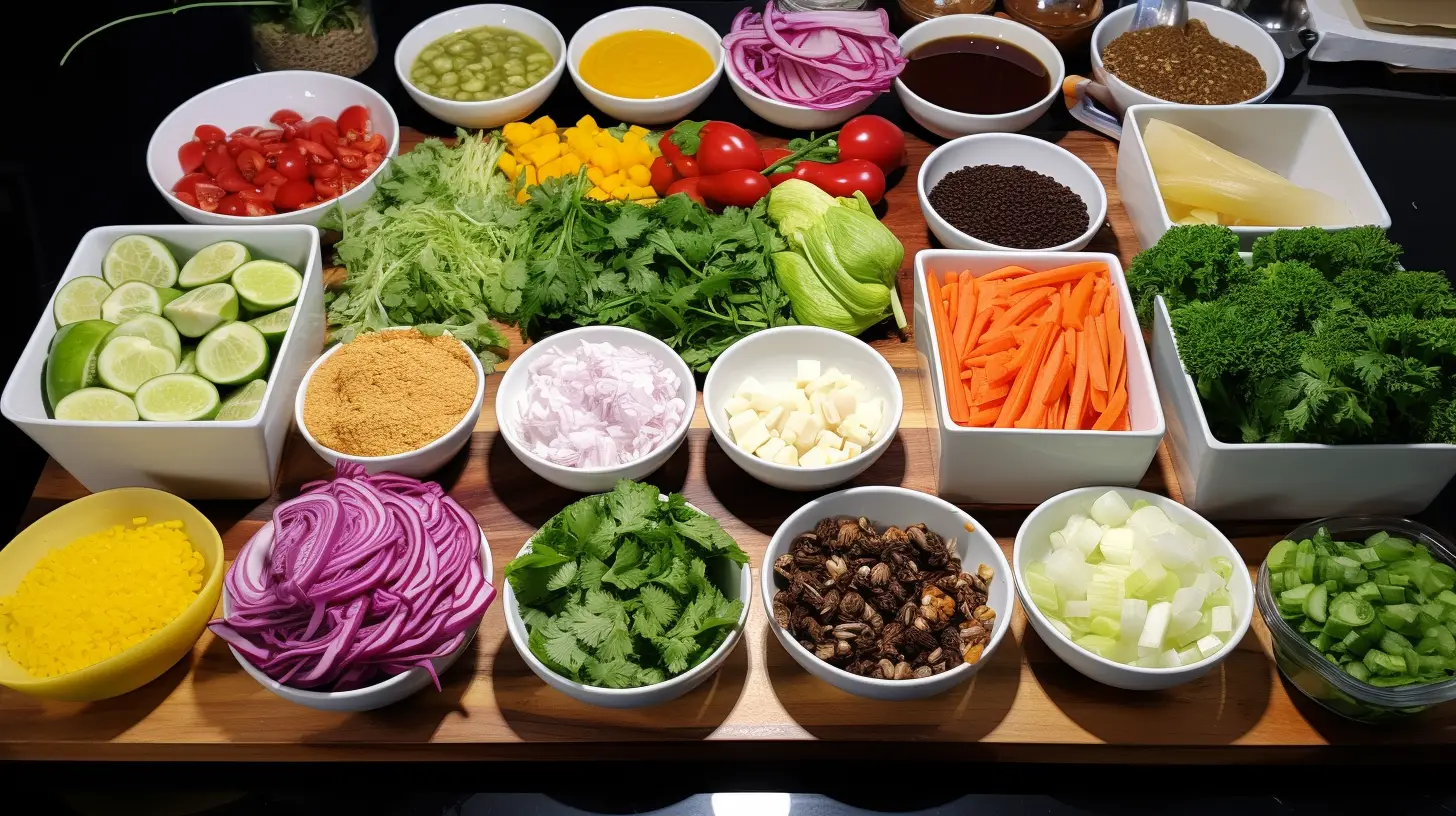Introduction
Cooking is an essential life skill that not only nourishes the body but also brings people together. If you’re a beginner in the kitchen or looking to refine your culinary expertise, this guide is for you. In this comprehensive article, we will explore the cornerstones of basic cooking and food preparation, providing you with the knowledge and confidence to embark on a delicious culinary journey.
The Basics: Essential Kitchen Skills
1. Knife Skills
Before you start cooking, it’s crucial to master the art of handling a knife. A sharp knife and proper technique can significantly enhance your efficiency in the kitchen. Learn how to chop, dice, and mince various ingredients with precision.
2. Cooking Techniques
Understanding different cooking techniques opens up a world of possibilities. From sautéing and roasting to boiling and steaming, each method imparts unique flavors and textures to your dishes. Experiment with these techniques to elevate your cooking.
3. Flavor Pairing
One of the keys to successful cooking is understanding flavor profiles. Experiment with combining sweet, salty, sour, and umami tastes to create balanced and memorable dishes. Don’t be afraid to explore unconventional pairings to discover new taste sensations.
4. Temperature Control
Mastering temperature control is essential for achieving perfect doneness in your dishes. Invest in a good-quality thermometer and learn the optimal cooking temperatures for various foods, ensuring your meals are consistently delicious.
Preparing Ingredients: The Foundation of Every Meal
1. Meal Planning
Begin your culinary journey by planning your meals. Create a weekly menu, considering nutritional balance and variety. This not only helps you stay organized but also ensures that you have the right ingredients on hand.
2. Ingredient Prep
Properly preparing ingredients saves time and makes cooking more enjoyable. Wash, chop, and measure your ingredients before you start cooking. This practice, known as mise en place, streamlines the cooking process and reduces stress in the kitchen.
3. Fresh vs. Processed
While convenience is essential, fresh ingredients often provide superior flavor and nutrition. Whenever possible, opt for fresh produce, meats, and grains. Understand the balance between using convenience items and maintaining the quality of your dishes.
4. Food Safety
Prioritize food safety to protect yourself and others from foodborne illnesses. Follow proper hygiene practices, store food at the correct temperatures, and be mindful of expiration dates. A safe kitchen is a happy kitchen.
The Cooking Process: From Raw to Delicious
1. The Saute
Master the art of sautéing, a quick and versatile cooking method. Whether you’re preparing vegetables, proteins, or a combination of both, sautéing allows you to lock in flavors and achieve a delightful caramelization.
2. Baking and Roasting
Explore the world of baking and roasting for succulent dishes with a crispy exterior and tender interior. From roasted vegetables to golden-brown poultry, these methods add depth and complexity to your meals.
3. Simmering and Boiling
Simmering and boiling are fundamental techniques for preparing soups, stews, and pasta dishes. Understand the differences in these methods and how they contribute to the textures and flavors of your favorite recipes.
4. Grilling
Fire up the grill for a unique and smoky flavor profile. Whether you’re grilling vegetables, meats, or even fruits, this outdoor cooking method is perfect for creating dishes with a distinct char.
Enjoying the Fruits of Your Labor: Presentation and Dining
1. Plating Techniques
Elevate your dining experience by mastering plating techniques. Presentation adds the finishing touch to your culinary creations. Experiment with different plate arrangements, garnishes, and drizzles to make your dishes visually appealing.
2. Family and Friends
Food brings people together, so consider the social aspect of dining. Share meals with family and friends, fostering connections and creating cherished memories. The joy of cooking extends beyond the kitchen and into the hearts of those you share your creations with.
3. Mindful Eating
Savor each bite by practicing mindful eating. Pay attention to the flavors, textures, and aromas of your dishes. This not only enhances your dining experience but also promotes a healthy relationship with food.
Conclusion
Congratulations on embarking on your journey into the world of basic cooking and food preparation. Remember that cooking is an art, and like any skill, it improves with practice. Whether you’re a novice or a seasoned chef, continuous learning and experimentation will lead to culinary mastery.

